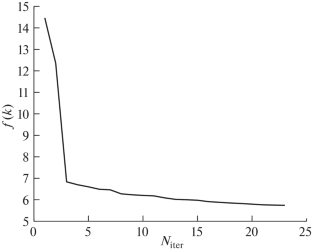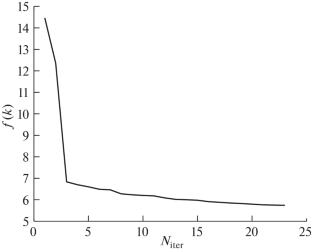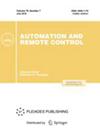抑制外生干扰的 PI 控制器设计
IF 0.6
4区 计算机科学
Q4 AUTOMATION & CONTROL SYSTEMS
引用次数: 0
摘要
摘要 提出了一种使用 PI 控制器抑制线性控制系统中有界外生干扰的新方法。该方法基于将原始问题简化为非凸矩阵优化问题。推导出了一种寻找控制器参数的梯度方法,并提供了其合理性。相应的递推程序相当有效,在工程性能标准方面产生了相当令人满意的控制器。本文是作者致力于从优化角度设计反馈控制法的一系列研究工作的延续。本文章由计算机程序翻译,如有差异,请以英文原文为准。


PI Controller Design for Suppressing Exogenous Disturbances
A novel approach is proposed to suppress bounded exogenous disturbances in linear control systems using a PI controller. The approach is based on reducing the original problem to a nonconvex matrix optimization problem. A gradient method for finding the controller’s parameters is derived and its justification is provided. The corresponding recurrence procedure is rather effective and yields quite satisfactory controllers in terms of engineering performance criteria. This paper continues a series of the author’s research works devoted to the design of feedback control laws from an optimization point of view.
求助全文
通过发布文献求助,成功后即可免费获取论文全文。
去求助
来源期刊

Automation and Remote Control
工程技术-仪器仪表
CiteScore
1.70
自引率
28.60%
发文量
90
审稿时长
3-8 weeks
期刊介绍:
Automation and Remote Control is one of the first journals on control theory. The scope of the journal is control theory problems and applications. The journal publishes reviews, original articles, and short communications (deterministic, stochastic, adaptive, and robust formulations) and its applications (computer control, components and instruments, process control, social and economy control, etc.).
 求助内容:
求助内容: 应助结果提醒方式:
应助结果提醒方式:


